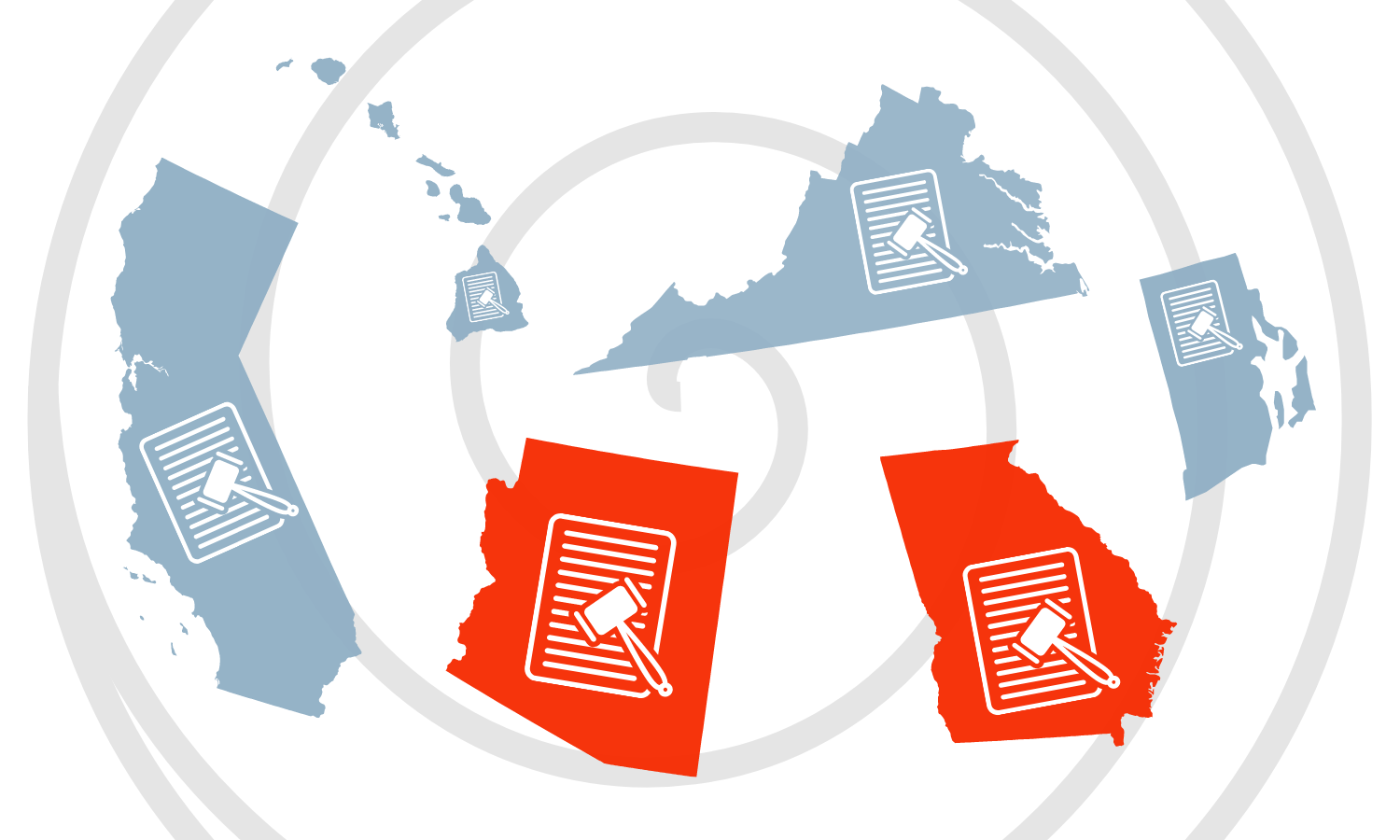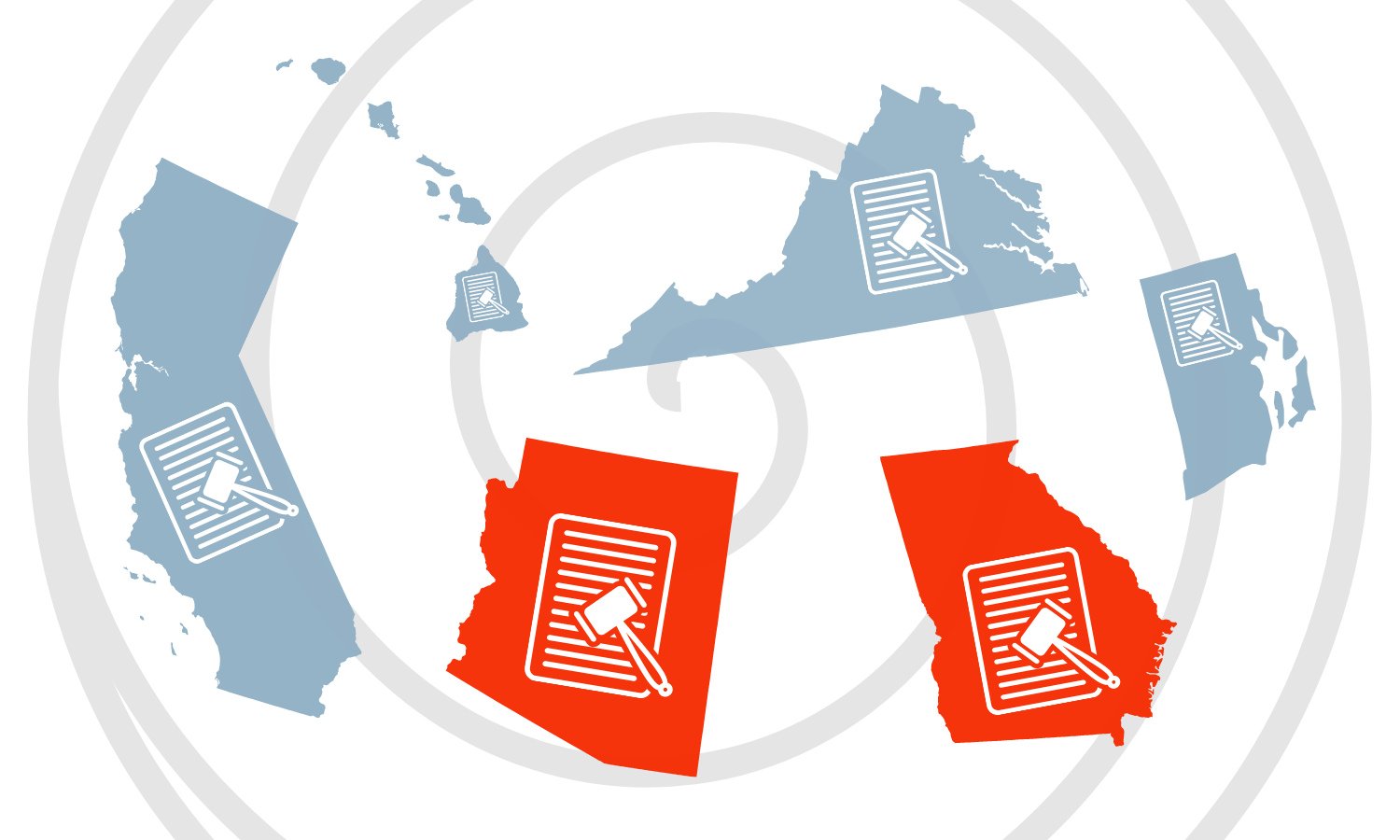The Developers Alliance March 2021 US Policy Update
Privacy
On March 10th Rep. DelBene (D-WA) introduced the Information Transparency and Personal Data Control Act, a privacy bill that would create national data privacy standards, bolster privacy enforcement, and protect consumer rights. The proposed bill is believed to be one of the most tech industry-friendly pieces of privacy legislation thus far, so we expect discussion around it to continue. See our full take on the bill here.
The further reason a federal privacy bill is a welcome move: Virginia recently enacted the Consumer Data Protection Act, making it now the second state next to California with a comprehensive privacy bill. Virginia’s law does not allow a private right of action and will be enforced by the commonwealth’s Attorney General. The law, which allows residents to opt-out of data collection and sale, will take effect on Jan. 1, 2023.
Without a federal bill, individual states will continue to legislate, leaving tech companies liable for settlements against a slurry of inconsistent individual state laws. Lawmakers, as well as policy and industry experts alike (including the Developers Alliance), recommend a broad data privacy bill at the federal level to preempt this confusion before it causes economic damage. Experts have also called for a comprehensive federal privacy law to set a unified groundwork before long-gestating federal legislation around technologies such as AI and facial recognition come to fruition. Much of the caution and ire is due to AI and facial recognition technologies negatively affecting minorities at higher rates.
Digital Tax
G20 finance ministers are in alignment that an Organisation for Economic Co-operation and Development (OECD) tax resolution is forthcoming, with the expectation of guidelines being released in July 2021. European leaders have made it clear that they will be imposing some form of digital tax by that same deadline, regardless of US cooperation. US leaders believe that the digital tax is discriminatory against American tech companies. Though new US Secretary of Treasury Janet Yellen initially announced that the US would push for a safe harbor allowing for an optional digital tax, recent negotiations have not included this proposal to build consensus.
App Stores & Competition
What was expected to be a big tech showdown turned out to be a dud, falling in the favor of developers. The Arizona Senate declined at the last minute to take a vote on whether or not app stores should be prevented from banning apps from conducting alternative in-app payment methods. Arizona’s Democratic leader and whip, both raised concerns about the proposed bill and whether its passage could lead app stores to start charging nonprofits and smaller developers more money for access – a move which would hurt small businesses. The Developers Alliance weighed in on the proposed Arizona bill, telling members we believed the legislation would “create significant uncertainty in the market, destabilize a robust ecosystem of developers and consumers, and harm Arizona software developers.” See our full comments here.
Arizona will likely not be the last state to test this policy out however as numerous states, including Georgia and Hawaii, have lined up in recent weeks to propose similar bills.
We’ve heard developers complain that the commissions of the platforms are too high, and we note that Google and Apple have both recently lowered their commissions by 15% for apps generating under $1mil to even the playing field for developers not working on behalf of large platforms. Google has stated that this initiative will lead to 99% of developers seeing the commissions they currently pay get cut.
Administration Changes
President Biden has tapped Lina Khan to be the new Democratic member of the Federal Trade Commission. Khan is a harsh critic of Big Tech. Her nomination is seen to signal the administration taking an aggressive stance on regulating large platforms, including Facebook and Google, in the competition space. If confirmed, Khan will be the youngest FTC Commissioner in history at the age of 32.
Hearings
Major tech CEOs were called to yet another hearing on Capitol Hill this month, with executives from Facebook, Google, and Twitter facing the wrath of House legislators over disinformation and social media’s role in promoting extremism and misinformation in society and online. Discussion continued on reevaluating Section 230, and the role the platforms played in the events at the Capitol on January 6th (this was the first hearing with tech CEOs following the insurrection). Members of Congress often demanded yes or no answers, focused their anger regarding misinformation in society at the platforms, and brought up the role the platforms play in child development. The CEOs largely stayed in line with the past statements, focused on working with the government to craft a transparent solution, and highlighted the often contradictory views lawmakers have on content moderation practices.
Industry Developments
With remote work in some capacity looking to stay around for quite some time, Zoom has released a new SDK for developers to increase their footprint and allow developers creativity to expand upon their platform and increase the potential for embedded content. This is a notable first for the company after an unexpected year of expansive growth and public scrutiny.
Google recently announced that it will end its usage of tracking technologies that are uniquely identifying users across multiple platforms as it phases out older products. The move, which could disrupt the digital advertising space, is said to promote further user privacy. Tech companies have been reducing targeted advertisement services in favor of contextual advertising for some time. This initiative by Google would further accelerate that change and go hand in hand with Google’s promise in 2020 to phase out third-party cookies.






